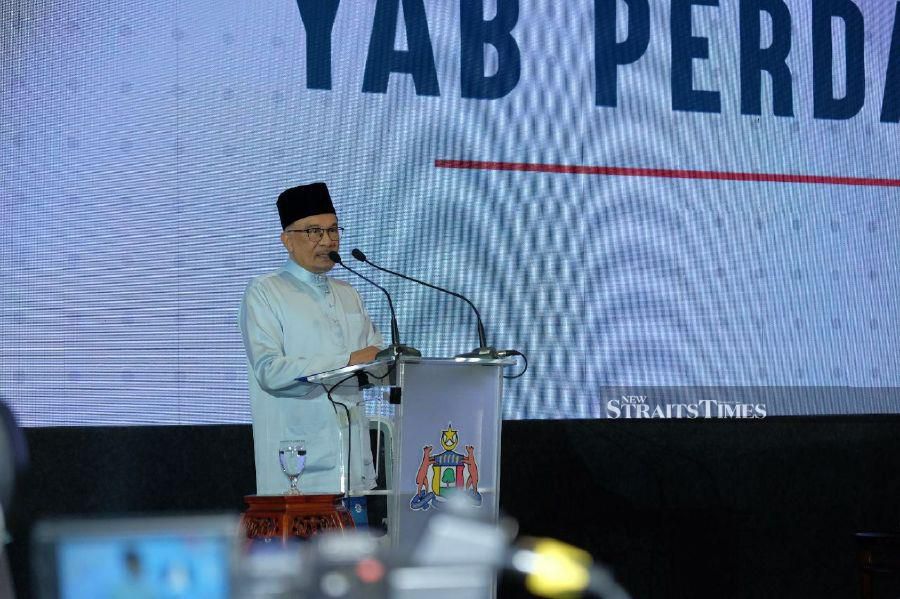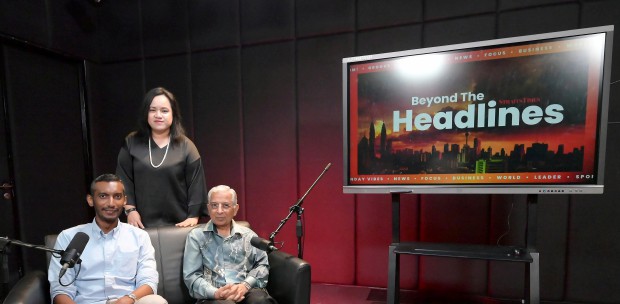MELAKA: The Federal Court's ruling on Kelantan Syariah Law is purely about determining and distinguishing the powers of the federal government and the state government, Datuk Seri Anwar Ibrahim said.
The prime minister stressed that the ruling handed down by the Federal Court had nothing to do with the federal government undermining the powers and position of the Syariah laws in the country.
In his speech during a meeting with civil servants at a state event at the Melaka International Trade Centre (MITC) here, today, Anwar also dismissed claims suggesting that the federal government was against syariah laws following such a development.
"It (the Federal Court's ruling in the case) has nothing to do with us (federal government) opposing (the) Syariah (laws). It is purely about the (distinction) on the jurisdiction and powers of the state and federal governments.
"The federal and state governments have their jurisdiction and powers. Issues related to lands are not under the powers of the state. However, issues pertaining to religion are under the jurisdiction of the state. The federal and state governments have their respective powers.
"For example, if a chief minister passed a new law deemed as contravening the powers of the state and federal government during a state assembly sitting next month, then the matter can be referred to the Federal Court (for it to decide whether the new law is constitutional or otherwise)," Anwar said in his speech at the event.
Present were Melaka Chief Minister Datuk Seri Ab Rauf Yusoh, Chief Secretary to the Government Tan Sri Zuki Mohd Ali and Public Service Department director-general Datuk Seri Wan Ahmad Dahlan Abdul Aziz.
Anwar later took to task the opposition Perikatan Nasional (PN) since the constitutional challenge was initiated during the previous administration and not when the unity government came to power.
"It has nothing to do with us since it is the laws of (passed and enforced) by the Kelantan state government.
"And the person who initiated the constitutional challenge is from Kelantan, who happens to be a member of Muafakat Nasional.
"And the constitutional challenge was initiated at the Federal Court and not in the cabinet or against the prime minister.
"Having that said, what did PN do when the constitutional challenge was initiated? Why did they not challenge it back then when they were in power? Only now they are speaking about it, trying to politicise the issue," he said.
Anwar maintained that the issue was being played up by the opposition to discredit the federal government.
"They are using the issue to create a sentiment among the Muslims in the country that the federal administration under Anwar's leadership is against the Syariah.
"Don't they know that the matter is purely about the powers between the state and federal governments," he said.
Earlier today in Putrajaya, the Federal Court made a ruling on the Syariah criminal enactment in the country.
Chief Justice Tun Tengku Maimun Tuan Mat, who led the nine-member bench, ruled that 16 out of the 18 provisions under the Kelantan Syariah criminal enactment, which are being challenged at the Federal Court, are unconstitutional. (hyperlink: https://www.nst.com.my/news/crime-courts/2024/02/1011445/heres-list-16-k...)
The provisions are Sections 11, 14, 16, 17, 31, 34, 36, 39, 40, 41, 42, 43, 44, 45, 47 and 48.
Tengku Maimun, who delivered the majority judgment ruling, ruled that the essence of these provisions were matters under the federal list, which only the Parliament has the power to make.
The constitutional challenge was initiated by Nik Elin Zurina Nik Abdul Rashid, a lawyer born in Kelantan, and her daughter Tengku Yasmin Nastasha Tengku Abdul Rahman on May 25, 2022.
Ends






